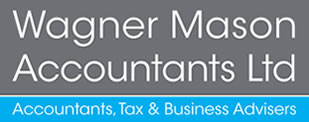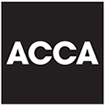Having worked hard all year what would you like to do with that hard-earned money?
Let HMRC take what they like?
Calculate what you must pay?
Plan your affairs so that you retain as much as possible?
If you answered 1. or 2. then you are truly an altruist!
If you answered 3. then please do talk to us.
We don't just calculate your tax bill (HMRC can do that for free).
We look at ways to plan your finances, offering practical solutions that allow you to keep more of the money you worked so hard to earn.
On £100,000 of business profit - here are the tax scenarios
(based on 2015-16 tax rates);
% tax paid were you a sole trader
% tax paid taking full salary
% tax paid taking salary/dividend split
That's a massive £5.8k saving in tax, every year, just by structuring your affairs properly!
There could also be scenarios where you partner is involved in the business and the tax saving could be even higher if they took a salary/dividends.
A sole trader pays income tax at the same rates as an employed individual (0%/20%/40%/45%) plus Class 4 National insurance (0%/9%/2%).
An employee pays income tax (0%/20%/40%/45%) plus Class 1 National Insurance (0%/12%).
A Limited company pays tax at 20% on the profits of the company. The Director shareholder can extract £39k from the Limited company without paying any income tax if in the correct mix plus 25% income tax on any further dividends up to the upper rate income tax band.
As part of our tax service we will deal with HMRC enquiries on your behalf, taking the headache out of those dreaded correspondences from the tax man.
Director dividends, salaries and pensions
You have made the decision to improve your industry and champion the best practices that make your area of specialism globally respected. You have become a business owner, a company director – you have stopped working for ‘the man’ and started working for yourself. The big question now is; how do you make money out of it?
It is common knowledge that around 20% of start-up businesses fail within the first year and 50% within the first three years will cease trading (http://www.businesszone.co.uk/node/11490). It is also common knowledge that of the new businesses that continue to run, owners still make a loss in the early years of trading or serving.
Flawed or non-existent business plans, poor management and lack of vision or clear goals are all cited as reasons that you might not be able to match your old salary when you become a director of your own company.
And that’s where Wagner Mason Accountants’ expertise makes the difference. There are ways of managing your personal income that the business generates to make the most of the money that you have worked so hard to earn. Your dedication to your industry should be rewarded and with strategies in place to ensure director dividends and salaries are balanced, rewards will come.
You may already have a pension in place since before you became a company director, or perhaps you have multiple pensions that need to be consolidated. With legislation being reviewed all the time, the best options to you are constantly changing. We can advise on the contributions you, and or your company can make and put you in touch with a financial advisor to advise you on the best possible route to take.
Dividend Allowance
From April 2016 the Dividend Tax Credit will be replaced by a new tax-free Dividend Allowance.
The Dividend Allowance means that you won’t have to pay tax on the first £5,000 of your dividend income, no matter what non-dividend income you have.
The allowance is available to anyone who has dividend income.
Headline rates of dividend tax are also changing.
You’ll pay tax on any dividends you receive over £5,000 at the following rates:
- 7.5% on dividend income within the basic rate band (previously 0%)
- 32.5% on dividend income within the higher rate band (previously 25%)
- 38.1% on dividend income within the additional rate band (previously 30.6%)
This will mean that those with significant dividend income will pay more tax.
If you would like to talk more about hoe the change in dividend taxation will affect your income please call us on 0800 011 2680 or complete the contact form below.


